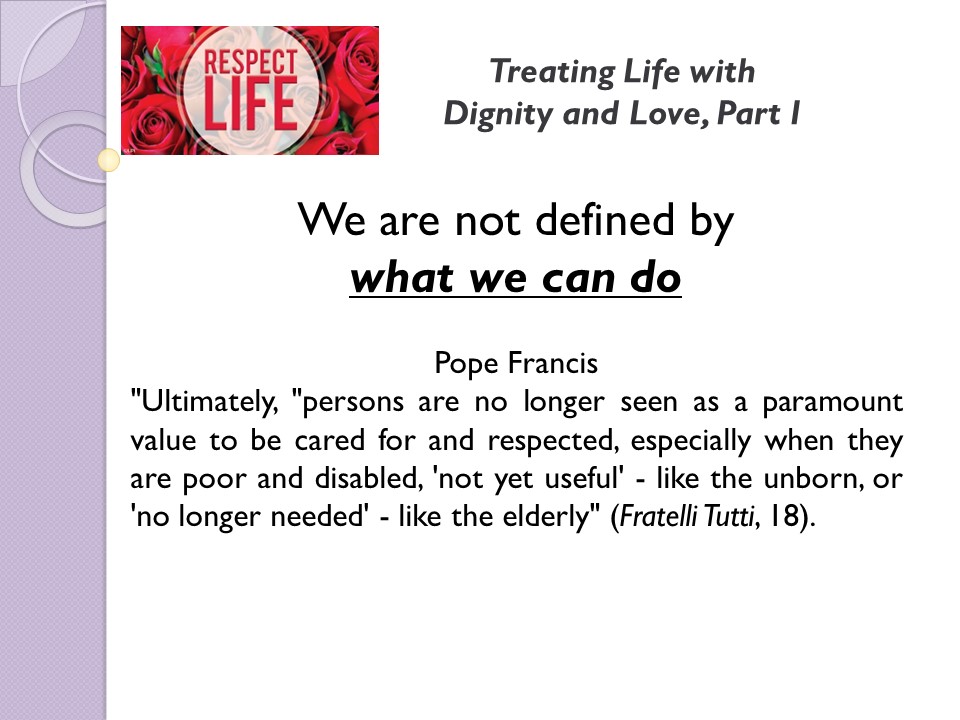In today’s second reading Paul writes, “I should like you to be free of anxieties.” I’m glad to hear that because I want to be free of anxiety. Who wants to be anxious? Yet, at times we are. Sometimes the concerns are real. At other times we make a mountain out of a mole hill. What makes us anxious? Generally we are made anxious over worldly matters.
There’s where Paul writes about how the unmarried person is anxious about the “things of the Lord” while the married person is anxious about “things of the world.” The married person has more to be concerned about in their family. The unmarried person does not have as much to be concerned about so they can focus more on God.
There’s one problem we need to address here. If no one marries and raises a family, the human race would die off. When Paul wrote this, he thought the Second Coming of Jesus would happen at any moment. So, there was no reason to be concerned about starting a family. It would be better to focus on the things of the Lord.
2,000 years later the Second Coming hasn’t happened. It could happen today or it might not happen for a thousand years. We do not know. We need to be prepared for the future. So, people do marry and raise families. This is good and necessary.
We do have our priests and religious who do not marry. Are they the only ones who can focus on the things of the Lord? Are they the only ones who can be saints? No!. Holiness is for everyone. What the married person, what all people need to seek is balance. We all need to have a proper concern for worldly matters, each according to their state in life. As part of “proper concern” we need to think about what makes us so busy with worldly matters. Does the world ask too much of us? Do we ask too much of ourselves in worldly matters? Are we involved in too many things to have time for the Lord? What might you give up?
We also might think about how it is we seek the Lord. A religious living in a cloistered monastery has more time for prayer and direct study. A parent raising young children doesn’t have that same amount of time to spend with the Lord. Prayer should still be a regular part of their daily lives but not in the quantity and/or way a monk or nun prays. The parent might count on others to spend time in deep theological study and then to share the core thoughts of what they learn with the parent. Here we can pray that the Lord sends prophets to help us learn.
We are all called to be prophets in sharing what we know of the Lord. Yet, we are not all called to be prophets in the same way. For Moses, service to the Lord was his full-time job. It is not for most people.
God promises that He will send prophets to deliver his messages. With lots of different things being said today, we have legitimate reason to be concerned about how we know who truly speaks in the name of the Lord. There are people who claim to do so but clearly do not. We pray for them and leave them in the Lord’s hands.
We pray that we know which ones to listen to. We pray that we actually and deeply listen so that we may live as the Lord directs. We pray that we do not harden our hearts against the Lord’s voice. Those who like their lives may harden their hearts. We must not.
How do we know who to listen to?
Here, I think of what the people in today’s gospel reading experienced in Jesus. Jesus taught in the synagogue. “The people were astonished at his teaching, for he taught them as one having authority and not as the scribes.”
The scribes were professional religious staff. They had some authority that went with their positions. Yet, the people did not perceive them as speaking with authority. Why? I suspect the biggest reason for this is that they may not have practiced what they preach.
What leads you to perceive authority in someone you encounter?
I think practicing what they preach would be part of perceiving authority for all of us. Why? To do otherwise is either to say they don’t believe what they are saying or that they think they are “outside the law.” We don’t like either of those.
We might also look to see if they speak with confidence. If they speak with doubt, then we might wonder if they believe it themselves. We might also ask ourselves if it seems like they have taken it to heart. Can they answer questions about what they say?
These are some of helps me see authority in others. I’d be interested in hearing what leads you to perceive authority in others.
Peace,
Fr. Jeff



